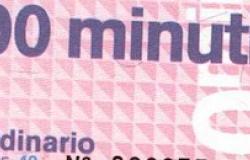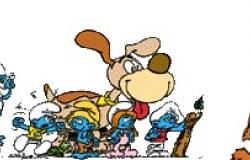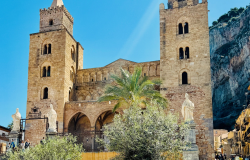Italian Language
by Pat Eggleton |
We all know that “arrivederci” means “goodbye” but what if someone says “arrivederla”? What is the difference?
Well, don’t worry because the person is…
by Pat Eggleton |
Words by Pat Eggleton - In this photo: a blue dress by Roberto Cavalli//Now it’s time to look at adjectives. Most Adjectives in Italian are placed after the…
by Pat Eggleton |
The suffix –ino [masculine] or – ina [feminine] means “little”:sorella – sister;sorellina – little sistercaro – dear;carino – dear in the sense of “cute”The…
by Pat Eggleton |
Words by Pat Eggleton//Masculine nouns ending in –o form their plural in – i:il libro – i libriun arco - gli archiMasculine nouns ending in unstressed – a [-a…
by Pat Eggleton |
Words by Pat Eggleton
You will all know that an Italian wouldn’t dream of beginning a meal without wishing everyone else at the table “Buon appetito” – the…
by Pat Eggleton |
Words by Pat EggletonTo ask if something is sold in a shop, we saysi vende plus objectif we are asking about one thing. - "si vende il pane? Do you sell bread…
by Pat Eggleton |
Words by Pat Eggleton//If you’ve been following our language lessons and tips for the past few weeks, you are ready to complete this conversation in Italian.…
by Pat Eggleton |
Words by Pat EggletonNervoso doesn’t mean “nervous”. It means “irritable”. If you want to say you are nervous, you should say, Sono ansioso / a. Una camera…
by Pat Eggleton |
//Last week we looked at the singular indefinite article [“a” in English] un, uno, una or un’. Now we need to look at how to say “of the” or “some”. This is…
by Pat Eggleton |
Words by Pat Eggleton“Prego” often causes confusion because it is used a lot. It can be used to mean “You’re welcome” or “Don’t mention it” after someone has…
Suggested Italian Properties
Featured experiences in Italy
Day Trips, Tour Operator, Tourist Guide, Tours
Sicily
Cooking School, Food & Wine, Tour Operator, Tours
Tuscany
Culture and Art, Food & Wine, Tour Operator, Tours
Cefalu














